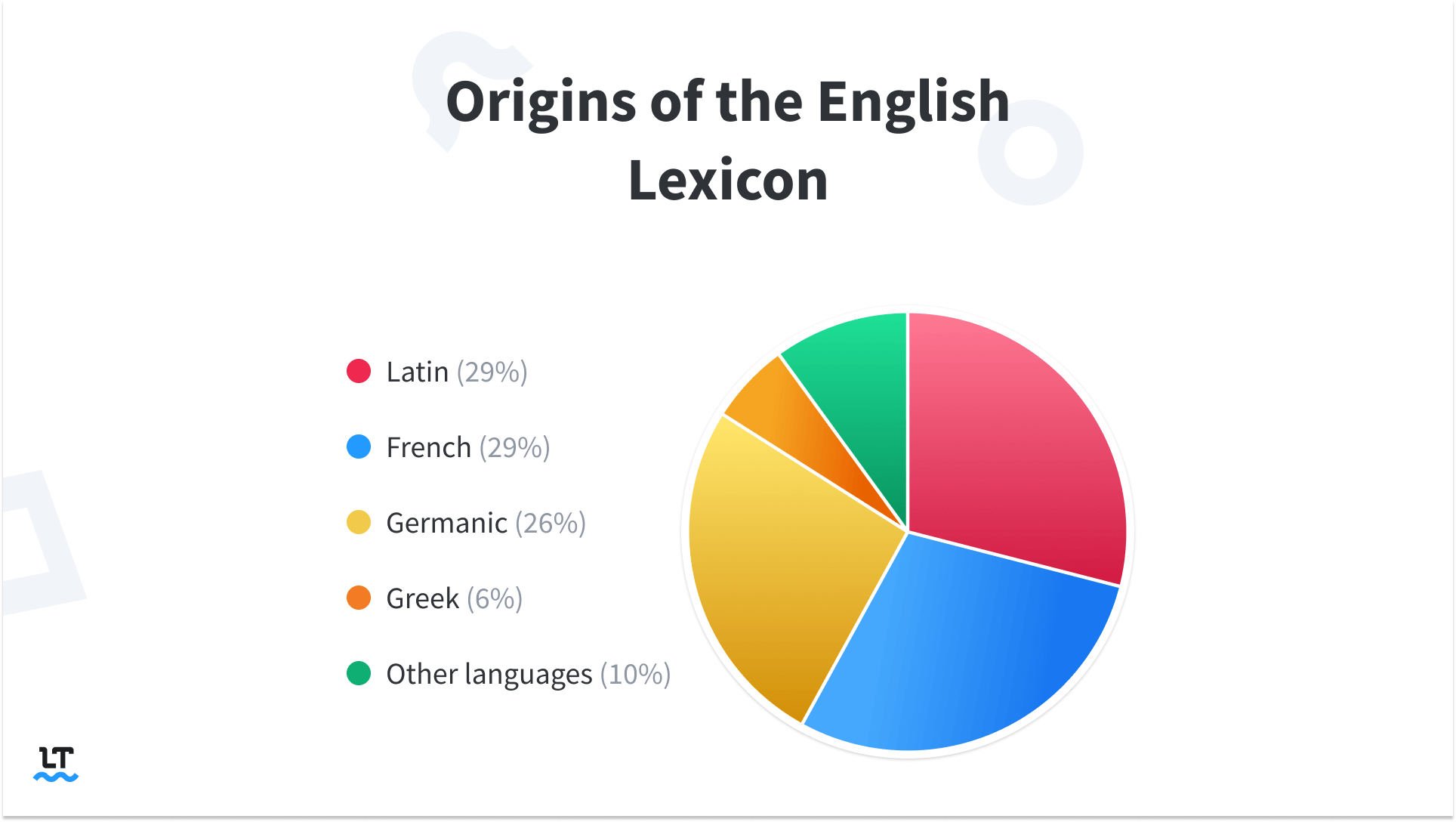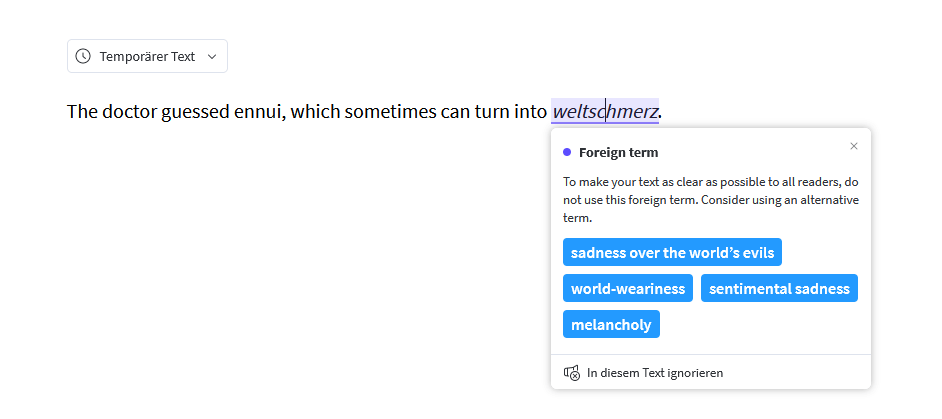On the occasion of the European Day of Languages on September 26, 2021, we tell you the travel story of the English language. Over the course of this article, you will see that every acquaintance and every encounter has left its mark. English was raised with the motto: you must be open to new ideas and innovative concepts.
Disclaimer
This allegorical story does not reflect the historical changes of the English language in chronological order, nor does it represent movements of English-speaking populations. Many borrowings from other languages happened in parallel, and under more complex circumstances than they appear in this story.

The Ancient Beginnings
(Germanic, Latin, Greek & Scandinavian)
Let’s start where the journey of English began: in Germanic Land. With only a sack full of his things, English walked many miles just to arrive at a big church. The walls were falling apart, but at least there were some streets leading off into the distance. An old lady living nearby gave English a nice dish (a butter-cheese-sandwich), and invited him into her kitchen. After a few days, English had enough of this old-fashioned and mysterious place, and continued his journey to another part of the country—the Latin area.
There, everything seemed more urban: a paper factory, expensive houses, and even an emperor as the ultimate head of state. English started working as a janitor, and gradually became a master of the Latin language. But then, the Greek catastrophe began, and all the tragedy of the city hit English horribly. The river overflowed with skeletons, and the atmosphere became unbearably macabre.
English changed his plans and set off to a new destination: Scandinavia. When he arrived, skilled Norse people helped him to settle down. They gave him food, and built a house for the migrant. Expectations were low, but luckily nobody was killed within the first year as the natives attentively obeyed the law. English even discovered a new hobby: ski slalom. There, he could score countless points! But he soon came to realize that that was not what he wanted: There is not much opportunity to be found in sports.
Off to the New World
(Native Languages Throughout the World)
English had enough of the European lands, and bought a boat to move on to new adventures. The first stop was the Americas, where he could see many unique species: moose in the hickory forests, opossums in the savannas, and chipmunks and woodchucks in the fields. The architecture was also really fascinating, ranging from wigwams to shacks to igloos. Axes were called tomahawks, jackets were anoraks, and boats were either labeled as kayaks or canoes. English had to adjust further, calling political rallies caucuses, and outdoor dinners barbecues.
However, English again wanted to see something different and exciting, and sailed to Africa. There, it felt like a jumbo jukebox with all the different sounds of banjos, marimbas, and bongos, and music genres like jazz. Unfortunately, English met a tsetse and got dengue fever afterward. Continuing his travels, he reached Asia. English sang karaoke with Japanese, stayed in a bungalow in the Indian jungle, and played checkers and chess with Persian.
After those joyful months, English made his way to Australia and the Pacific islands. Yet again, it was astonishing how many labels he was learning to describe the beautiful nature and landscape. English learned how to play the ukulele, lived in a cottage made of bamboo and rattan, and even got tattoos as they were no longer taboo anymore.
Coming Home (Good Old European Languages)
After a trip around the globe, English returned to his roots in Europe. In his new neighborhood, there lived a casino owner from Italy. He often spoke about growing up in a ghetto and working in an umbrella factory. But singing opera and playing the violin have always been his dreams. Then, there was a Spanish lady who had been to many parts of the world as well. Once, she showed English photos of ranches in New Mexico between large, orange canyons, before a tornado tragically destroyed everything. All that the vigilant woman could bring to Europe was her guitar and some marijuana. Another friendly acquaintance of English was a German mother. She was a hausfrau, and apparently bored with the current zeitgeist; that is why she spread a rumor about raising a wunderkind at the local kindergarten. Her husband was working on a U-boat and seldom home. So, she was alone with her daughter, and their poodle.
One day, after having been back in Europe for the years, English accidentally bumped into his first love: French. They had met by chance during a trial in the Supreme Court. The evidence was clear. As the attorney and the plaintiff argued flawlessly, the crime was proven. English and French were both witnesses to the case, and had to watch the jury decide the verdict. Another chapter of their love story was the battle of their home countries. Many soldiers and members of the navy died as the enemy’s defense was formidable. At that point, English believed that they would never see each other again. But for now, they meet every week and talk about everything: fine arts, fashion and jewelry, as well as the royals (e.g., the prince, or the duchess).
And they all lived happily ever after.
If you want help with writing stories like this one, you should try LanguageTool. Our intelligent spell checker corrects your spelling, grammar, as well as your writing style. Whenever you come across any foreign (loan) word, LanguageTool knows precisely how to spell it and when to use it. Always be in vogue with exquisite and chic vocabulary choices.
If you use a loan word that is confusing for your readers, LanguageTool will alert you and propose another (English) synonym.


